|
1/31/2022 So Many Hearts Ache for Lives Lost to Suicide THAT We, The Living, Must Shine a Healing Light on Silence, Shame and Stigma: AN Interview with Child Psychiatrist, Artist and Poet, DR. DianE Kaufman, MDRead NowHope lives. shame kills. everyday is suicide prevention day for Dr. diane kaufman, MD.Kerry: As suicide survivors and mental health advocates, Lucia and I both so deeply appreciate your tremendous body of work in suicide prevention. Your award-winning poems, songs, posters, videos and even an opera have inspired hope, encouraged people who are hurting to reach out and offered solace to those who have lost a loved one to suicide. Can you tell us why suicide prevention plays such a prominent role in your life and work? Diane: In August 2019, my friend and mental health colleague Stacy ended her life by suicide. Her tragic death was and still is a shock to me. Stacy was a psychiatric nurse practitioner of great skill and compassion. I respected and admired Stacy for having so many positive qualities. I used to tell myself, if a family member of mine needed care, I would send them to Stacy. Her taking her own life and leaving behind two sets of young twins was absolutely one hundred percent out of character for Stacy – the woman, friend, and mental health professional - that I knew her to be. What ended Stacy’s life – what devoured, destroyed, and killed her – was depression. Even as I say these words, tears come to my eyes. I still can’t believe she is gone. Depression is a physical illness that invades the mind, body, and spirit. And, it can kill.
There, however, have been other significant events. When I was a medical student, I attempted suicide, and was medically hospitalized. When I was married, my father-in-law killed himself by gun shot. My teenage patient, who seemed to her mother, her teachers, and to myself to be doing so well, hanged herself in 2016. The best friend of my young adult patient died by overdose in 2020. My patient, who had her own history of suicide attempts (prior to when I began treating her), found her friend, and then became at increased risk for suicide herself. All of these tragic events have transformed me into a suicide prevention activist. poetry transforms depression and despair into Healing and hopeLucia: Why do you choose to express yourself through poetry? And, what was the impetus behind writing the poem, “Don’t Give Up” which you would later turn into lyrics with a song-writer and then two Suicide Prevention Public Service Announcements (PSAs), both a one minute version and a longer five minute version, in hopes that people would share the PSAs far and wide to help those who were struggling?
Diane: I turn to poetry to express myself when I am feeling overwhelmed by thoughts and feelings. It’s a way to safely get what is inside of me – what’s troubling me – out into the world and onto a page. It often feels like the poem is a living thing wanting to communicate and be expressed, and I am the one listening and holding the pen to let it out – to be taken in and experienced by another. “Don’t Give Up” was an outpouring of my heart listening to the sadness, depression, despair, and suicidality of my youth patients. It’s a conversation with a suicidal person. The poem is saying even though you want to kill yourself, please don’t do it because I understand how you feel, and I know that your choosing death is not the answer. There are reasons for you to keep living and people who truly care and can help you. How do we convince those feeling hopeless to not give up?Kerry: There is a quote by Hal Lindsey, “Man can live about 40 days without food, about 3 days without water, about 8 minutes without air, but only for 1 second without hope.” Not surprisingly, hopelessness is the leading predictor of suicide. Speaking as an attempt survivor, I can certainly attest to that being the case for me. For months on end, I battled with feeling like there was no hope that anything was going to get better, no hope I was going to feel anything other than this unbearable sense of loneliness, bleakness and foreboding, no hope for a better tomorrow … really that there was no hope for me. And, then to see those I love seeing me that way and not knowing how to help me was just too much to bear. I was not only hurting but I was hurting them. How do we get people to not give up and give into these feelings of hopelessness? Diane: The first line of the poem/lyric is “Don’t give up even though you want to.” Many people – maybe all people – have at times felt like giving up - wishing they were never born, wishing they could just sleep forever, wishing they could be dead, and for some – wanting to end their emotional pain by killing themselves. I want the person listening to the song to feel the song is being sung just for them. For them to know they are not alone in feeling hopeless, and yet also to know that this day is not forever, there will be another day and life can change for the better. As long as there is life and there is help available there is hope. Suicide is forever. The severe emotional pain coming from depression and/or severe life stressors can be helped, lessened, and improved while we are still alive. We don’t have to kill ourselves to stop the pain. I know this to be true as I have lived it. When we are depressed, our thinking gets distorted and it’s as if all we see is darkness. It’s important to be compassionately reminded that, “There will be a better now even when we don’t see how” and that “Tomorrow’s light is a gift from the night.” What more can we all be doing to help our CHILDREN struggling with their mental health?Kerry: Given your specialty is child psychiatry and you see in your practice teens who struggle with suicidal ideation or who have attempted to take their own lives, what more do you think we need to be doing to help our kids given suicide rates are increasing in this demographic? In October 2021, the American Academy of Pediatrics, American Academy of Child and Adolescent Psychiatry and the Children’s Hospital Association declared a national emergency in youth mental health. This declaration should inspire and galvanize us to collaborate on behalf of youth mental health by improving access, services, and resources. We need more mental health providers and services available. We need more in-patient psychiatric beds available, as well as a higher level of care and specialty programs. Social media can damage youth mental health when self-worth is judged by “likes” and when sense of self and self-esteem plummets by negatively comparing ourselves to online profiles of others. Youth need healthy social connections and to experience themselves as worthwhile. They need caring adults who will ask the questions – “Are you okay? Are you feeling anxious and/or depressed? Are you thinking about hurting, cutting, and/or killing yourself? You can tell me because I care about you.” Youth need to know there is no shame in seeking help and that mental health is physical health and help is available. Mental health education should be integrated into all school settings. There are skills and coping strategies we all need to learn and practice. We also need to understand the warning signs of mental illness so we can better recognize when things are not okay with us. honoring and practicing THE human art of connection To promote mental health and NUTURE resiliencELucia: Diane, you have also worked for many years as a Child Psychiatrist back East and now in Oregon, and have extensive training in the therapeutic use of poetry, art, and story. Now, as Founder and Director of the Arts and Healing Resiliency Center at Mind Matters, PC, how are you working to eliminate silence, shame, and stigma to prevent suicide? Mental health well-being can be nurtured in many different ways. I have Bipolar II Disorder, attempted suicide as a young adult, and became a child psychiatrist. Sharing my story helps break through silence, shame, and stigma. I am an ASHA International storyteller and am on their Board of Directors. It’s a great organization that highlights the “superpower” of our personal mental health stories. The expressive arts can also play a vital role in facilitating and fostering mental health. The inspired mission of the Arts and Healing Resiliency Center is to honor and practice the caring art of human connection. The ARTS Program, our unifying concept, inspires Adolescent and Adult Resiliency Training as well as Skills and Support by interweaving evidence-based mental health skills, positive psychology principles, and the creative arts to promote, nurture, and build mental health and life affirming resilience. The goal of the program is a felt sense of personal integrity, authenticity, and responsibility leading to social-emotional and behavioral well-being. We offer online workshops, special events, mentoring, and therapy.
AuthorSKerry Martin, CEO and Founder, and Lucia Martinez Rojas, Social Media Strategist and Videographer, Accelerating Social Good with guest Diane Kaufman, MD, Child Psychiatrist, Humanism in Medicine Awardee, and Founder and Director, Arts and Healing Resiliency Center, Mind Matters PC.
0 Comments
1/18/2022 Three Words, I Need Help, Changed His Life - A Father Finds Happiness After Suicide Attempt And is now Helping Others do same as Stigma Fighter And Mental Health advocateRead NowMeet Pat Lawson, one of our stigma fighters on our Wall of Solidarity in our Accelerating Mental Wellness Campaign. Pat is many things to many people but I will try and sum it up here. He is a loving, devoted and amazing husband and father, a much loved son and brother, incredible friend, international keynote speaker for mental health and suicide prevention and founder of 3Words Mental Health Awareness. From the outside looking in it seems as if he is totally fine doesn’t it? Looks can be deceiving. Pat has his own mental health challenges and diagnoses and things got so bad for him that he tried to end his own life. "DON'T MAN UP. IF YOU WANT TO BE TOUGH, EXPRESS YOUR EMOTIONS."Nobody knew the internal pain Pat was suffering. He hid it from his wife, his parents, friends and sisters. On the outside he was this exuberant happy go lucky man, but on the inside he was struggling. He didn’t reach out for help as most men don’t. Men are far less likely to seek help for a mental illness due to a number of reasons, e.g., societal factors like they have to suck it up and be a man, stigma and long standing cultural issues around men. While Pat hid his mental health from everyone, he sought no support. He thought he had to “man up”. It was this that led him to the fateful day he tried to take his own life. Thankfully Pat wasn’t successful. The world would have lost someone really special if he had been. After his attempt he told his wife, who had no idea that Pat was struggling. It took him attempting to take his own life to finally open up to his wife and family, who were in disbelief as he didn’t portray any outside symptoms of mental illness. In Pat’s own words, asking for help was the hardest thing to do but he was so relieved when he did. This isn’t a story that ends with Pat. Countless men go through the same thing and they don’t seek help as it’s seen as a sign of weakness. But, Pat has a message to men: “Don’t man up. If you want to be tough, express your emotions.” how 3 words - "I need Help" - changed his lifeHere is a video of Pat explaining his story and how three words - “I need help” - changed his life. They are the hardest words to say and Pat still has difficulty saying them. Share his story to help other men say 3 wordsPat is now an amazing advocate for men's mental health and works tirelessly to help those in need. Sharing his story has helped him recover and while he still struggles, he has tools and support around him now which makes things easier. We are so grateful for Pat letting us tell his story and for being one of our amazing stigma fighters. Follow 3Words on Facebook and Instagram to keep up with Pat’s advocacy work. And, let's share his story to help others share his 3 words. We all deserve to find happiness. AuthorPost by Erin Macauley, Chief Operating Officer & Mental Health Advocate, Accelerating Social Good; Australia Chair, Accelerating Mental Wellness Campaign. 1/17/2022 Honoring Dr. Martin Luther King Jr's Legacy BY LETTING HIS IDEALS LIVE ON THROUGH ME: A MENTAL HEALTH ADVOCATE FIGHTING FOR SOCIAL CHANGERead NowCan you imagine a now 91-year old Dr. Martin Luther King Jr giving me, a mental health advocate, this pragmatic advice: “convince a CEO why he needs to retain someone with depression or PTSD versus fire him, then you’re set"? Dr. King was viewed by many as a troublemaker, in the best sense of the word. He understood what it meant to create discomfort and disharmony. But, his underlying intent was always to do so for our collective well-being. For that, we owe him our collective gratitude. To affect meaningful social change on behalf of those our team advocates for, we too must walk in his footsteps and be troublemakers or changemakers as we like to call ourselves. Speaking for myself, as an advocate for those with serious mental (read brain) illnesses, I will not advocate for those without a heart. Dr. King would not have doled out that advice I was given, albeit my head did understand it was a matter-of-fact suggestion in today's heartless business world where people are often subjected to the almighty dollar's reign. However, my heart was not only disillusioned but my sensitive soul brutally reminded of why, after being laid off during the throes of a deep bipolar depression from a stigma-laden workplace and subsequently trying to take my own life, I have no desire to return to cold-hearted Corporate America. (You can read my story here). MLK is gone, But I Choose to Honor HIS LEGACY.Dr. King’s simple answer to those who condemned idealism, preached the quiet cynicism of self-limiting “pragmatism,” insisting it is “how the world works,” was he was “maladjusted.” In a 1963 speech at Western Michigan University, he said: “There are certain things in our nation and in the world which I am proud to be maladjusted. ... I say very honestly that I never intend to become adjusted to segregation and discrimination. I never intend to become adjusted to religious bigotry. I never intend to adjust myself to economic conditions that will take necessities from the many to give luxuries to the few. I never intend to adjust myself to the madness of militarism, to self-defeating effects of physical violence.” I too am maladjusted. I never intend to become adjusted to mental health stigma, i.e., discrimination. I never intend to adjust to the heartlessness of those who fire or lay people off because they bravely come forward and say they are struggling with depression. To the bigotry of those who fire people when they discover they have bipolar disorder. To the ignorance of those who don’t hire people because they are neurodivergent, e.g., by some reports, unemployment of autistic professionals with college degrees may be as high as 90 percent. And, I never intend to adjust to those who need to be convinced it is cheaper to retain people who have depression versus lay them off as I believe I have suffered enough. I live in California, an at will State, where you can be fired for no reason, and I am painfully aware of this fact. There is zero accountability or recourse for those of us who get let go because of our mental health struggles. We should all be insisting this is not how the world should work. It is those who are leading our companies to whom I say, please adjust your business mindset, tune into these simple human facts below and, let us bridge this gap. In his “I Have a Dream” speech, which I pray will reverberate from our classrooms across the country today, I also hope we hear these prophetic words: “I am convinced that if we are to get on to the right side of the world revolution, we as a nation must undergo a radical revolution of values.” ~ Dr. King, I Have a Dream Speech delivered in Washington, 1963 In the words of Barack Obama, we have an empathy deficit. And, I can hear Dr. King whispering, we must undergo a "radical revolution of values" and demand empathy back in our workplaces. Putting people before profits and leading with empathy is the ONLY sustainable path forward in our new normal.Perhaps I am an idealist but one thing is for damn sure - there is a glaring bright light on the other side of the bridge beaconing us forward: putting people before profits and leading with empathy is the golden sustainable path to remaining not only profitable in our new normal but, more importantly, attaining mental wellness for all. Can there be any doubt that Dr. King would be devoting his energies to fighting for those with chronic mental conditions who remain excluded from DEIB programs? Who get laid off or fired because they struggle through no fault of their own with disabilities that are invisible or keep hidden because of shame due to stigma? Who must work in environments that are not inclusive or psychologically safe with no needed mental health supports as they cannot afford otherwise? “Of all the forms of inequality, injustice in health care is the most shocking and inhumane.” ~ Dr. King in his speech to the Medical Committee for Human Rights, 1966 Given all we know of Dr. King’s values, it is not unreasonable for our team to believe that his spirit also lives on in our Accelerating Mental Wellness Campaign, a grassroots social change campaign for the people by the people. Our goal is to eradicate stigma from our workplaces, rebuild corporate cultures on a foundation of empathy, inclusivity and wellness, bringing in needed mental health programs and supports for all. Three Ways you can help support mental wellness for allIf you hear Dr. King whispering to you too and want to eradicate stigma in our workplaces and bring empathy back, here are 4 simple ways you can help:
We can of course never be sure how Dr. King might view all of our current pressing issues. But, he can still guide us through his rich and deep record of words, deeds and actions. This is how, as mental health advocates and, we as concerned citizens, can best honor his memory and his life of service. The world needs more (pacifist) troublemakers or changemakers who make us feel discomfort and disharmony. By making people feel uncomfortable as well as making them accountable for detrimental human costs of their "pragmatic" choices, we truly can affect change for the social good. In the words of my dear friends and fellow tribe mates, Jack and Allié McGuire, Founders of AwarenessTies at www.iamawarenow.com, we will no longer wait for permission to change the world. With gratitude and with hope. #RIPMLK AuthorKerry Martin, Mental Health Advocate, self-proclaimed troublemaker and changemaker, CEO and Founder, Accelerating Social Good. |
Details
Archives
February 2023
Categories
All
|
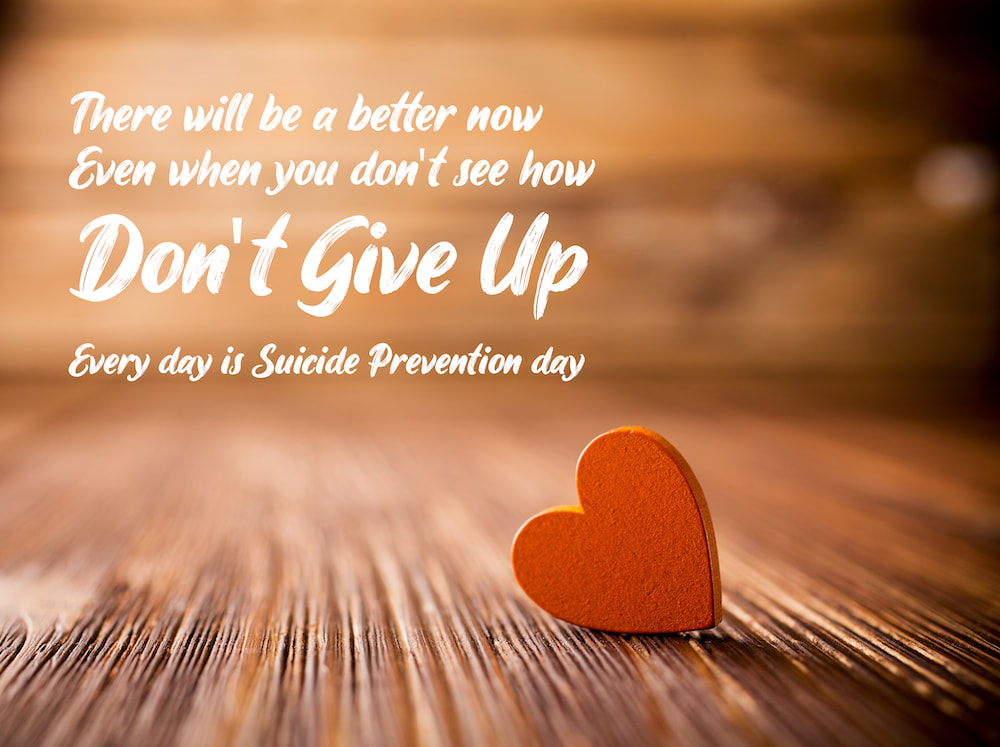
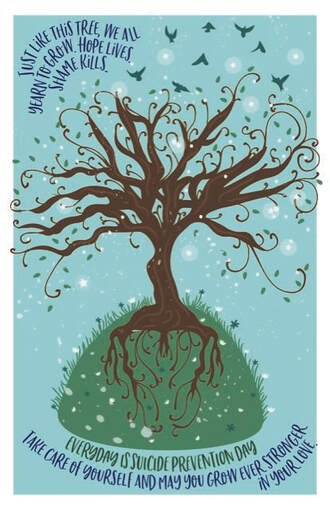
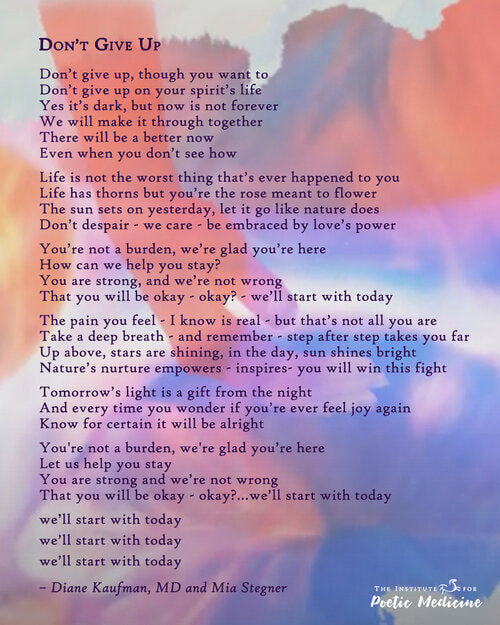
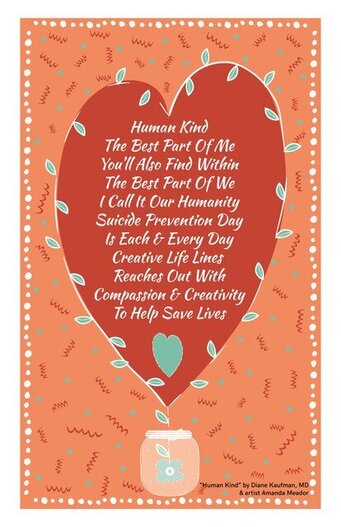
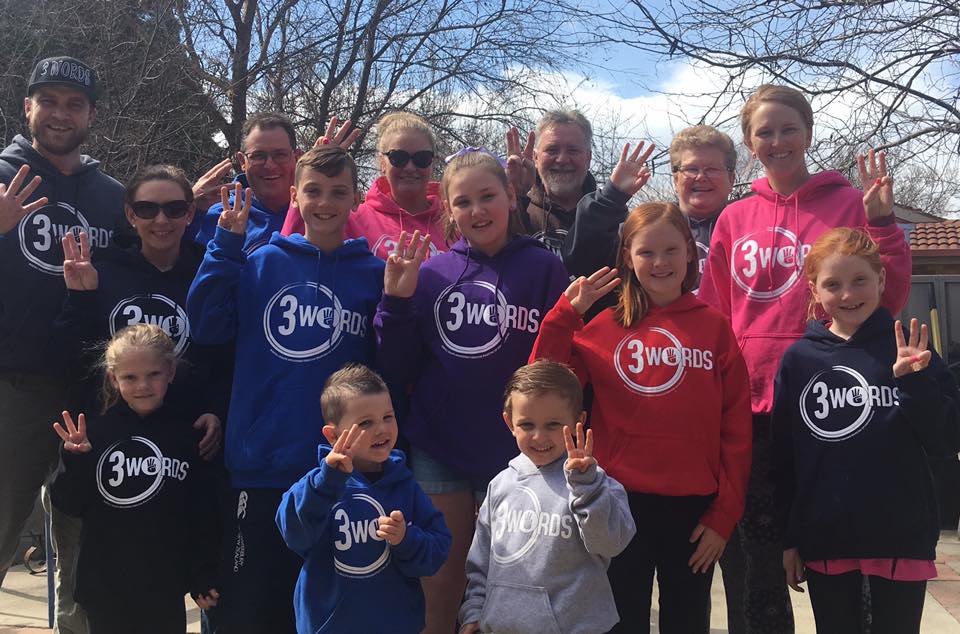
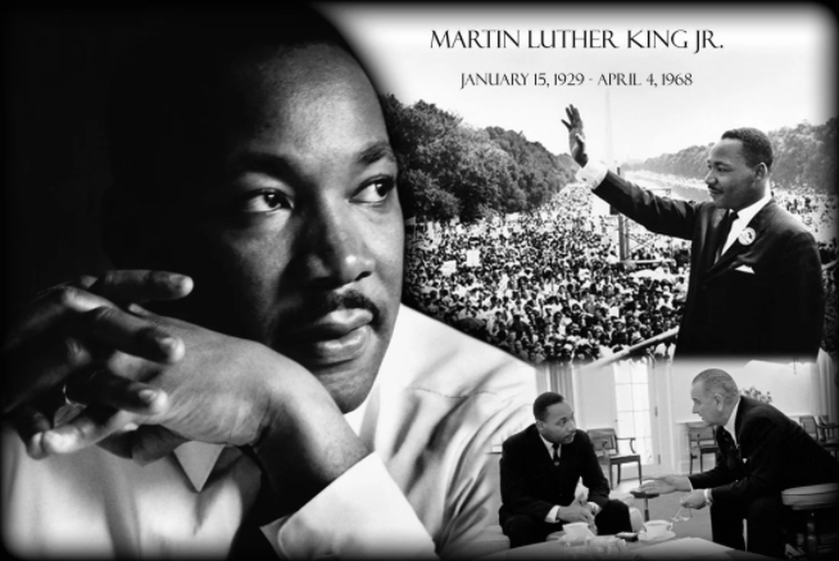
 RSS Feed
RSS Feed